Approved Continuing Education
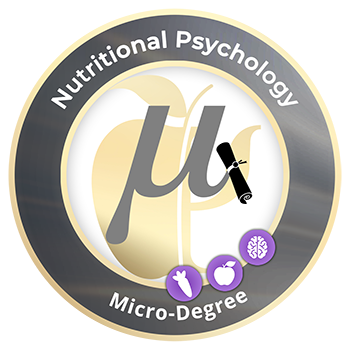
Graduate-Level Learning
Micro-Degree in Nutritional Psychology (Coming 2026)
 The CNP Micro-Degree in Nutritional Psychology (NP-FMA) is a focused, Continuing Education credential designed to support you in broadening your expertise to include education, assessment, and intervention in clinical and professional practice. This program equips you with practical skills for addressing psychological health and well-being in clinical and professional environments, within the context of nutrition–related mental health.
The CNP Micro-Degree in Nutritional Psychology (NP-FMA) is a focused, Continuing Education credential designed to support you in broadening your expertise to include education, assessment, and intervention in clinical and professional practice. This program equips you with practical skills for addressing psychological health and well-being in clinical and professional environments, within the context of nutrition–related mental health.
Unlike a traditional university graduate degree, the CNP Micro-Degree is designed for practicing professionals who want to expand their ability to integrate nutrition and mental health assessment and intervention within their current scope of practice. It is not a standalone qualification for licensure or professional practice.
Licensed professionals with an NP-FMA are equipped to perform a wide range of educational and integrative functions within their discipline. These may include conducting psychonutritional assessments and interventions, providing guidance, developing client awareness programs, integrating psychonutritional insights into established care strategies, and applying evidence-based principles to enhance nutrition-related mental health and well-being outcomes.
Professionals who earn their NP-FMA demonstrate advanced expertise in integrating mental health and nutrition within their practice, enhancing clients’ DMHR literacy through evidence-based, informed skills.
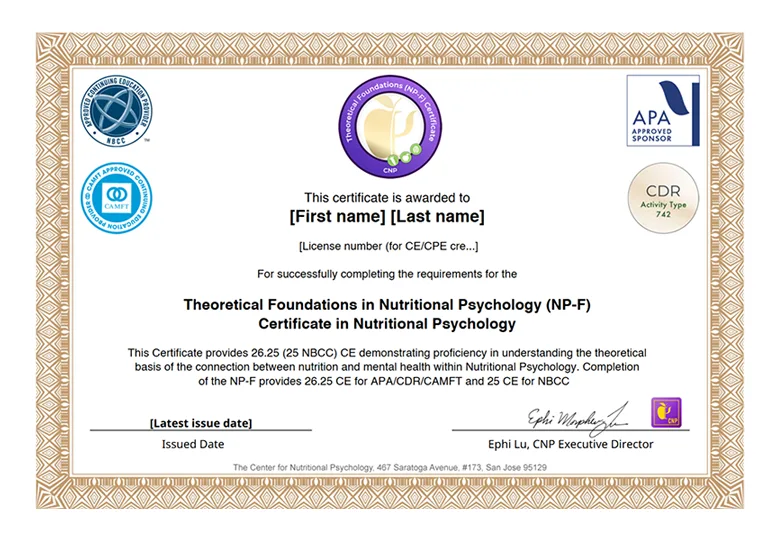
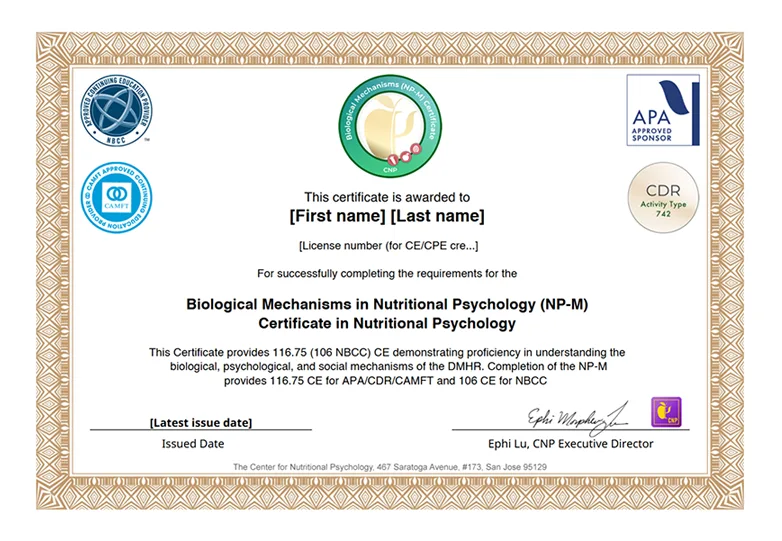

Requirements: The NP-FMA Micro-Degree in Nutritional Psychology requires the completion of 11 courses, grouped into three thematic areas: Certificate 1: Theoretical Foundations (NP-F), Certificate 2: Biological Mechanisms (NP-M), Certificate 3: Clinical/Professional Applications (NP-A). While Certificate #3 courses will become available in the spring, summer, and winter of 2026, learners can prepare now by completing the NP-F and NP-M certificates.
For professionals who have just completed the NP 100 Series Certificate (or are in the middle of completing it): As CNP transitions its CE program into a Certificate and Micro-Degree format, any courses completed in the NP 100 Series Certificate transfer to meet requirements for earning any of the Certificate or Micro-Degree in our new program structure. All CE previously completed remains fully valid, recognized, and applicable toward any CNP certificate or the new Micro-Degree.
Learners who earned the NP 100 Certificate have already fulfilled Certificate #2 in the new framework, and NP 100 also counts partially toward Certificate #1. Detailed instructions will be provided on how your existing coursework is transferred and how to proceed in the new program. If you’re unsure of your standing, contact our Program Administrator at admin@nutritional-psychology.org.
Why Complete Our Nutritional Psychology Micro-Degree (NP-FMA)?
Our micro-degree in nutritional psychology equips you with strong, evidence-based knowledge of the theoretical and biological connections between nutrition and mental health. It also enables you to integrate interdisciplinary nutrition and psychological science into your practice or classroom while remaining within your specific professional scope of practice. Additionally, this micro-degree can enhance your professional credibility, support your continuing education goals, and allow you to expand your range of services offered to your clients, patients, and students.
From CNP Articles
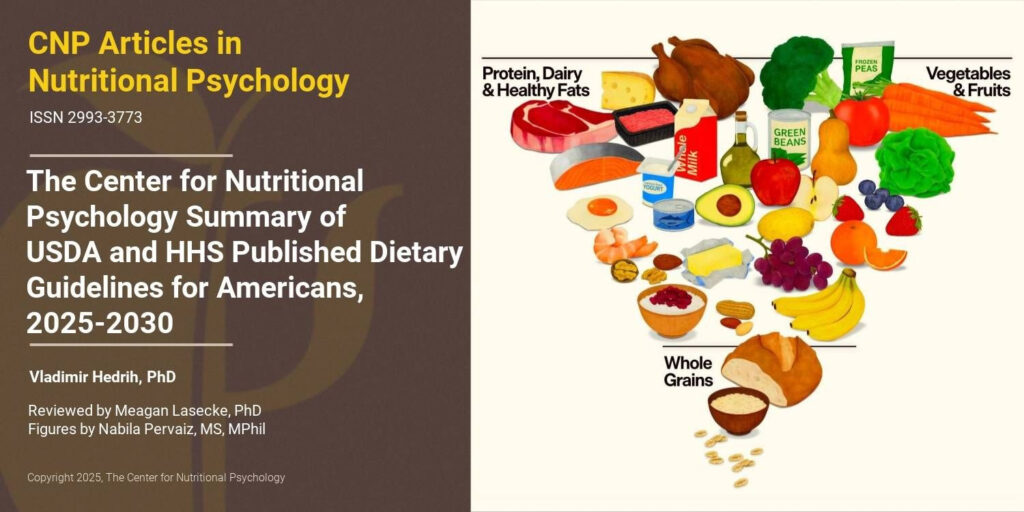
Editor’s Note: This CNP summary presents the newly released Dietary Guidelines for Americans 2025–2030, exactly as published, without additional commentary. The CNP team is currently conducting an internal review to assess these guidelines and their implications for nutritional psychology. Overview of the USDA & HHS Dietary Guidelines for Americans (2025–2030) The U.S. Department of Agriculture […]
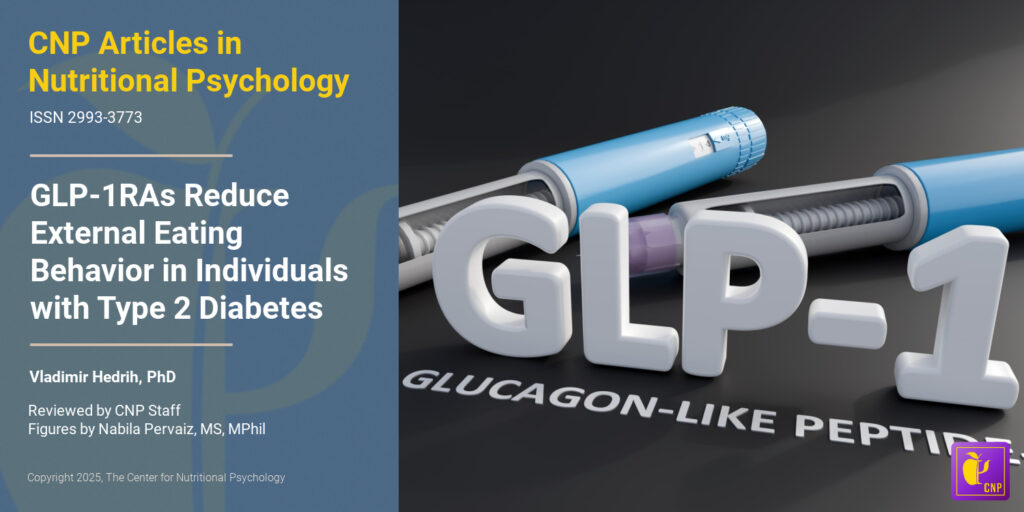
A multicenter observational study in Japan published in the Frontiers in Clinical Diabetes and Healthcare found that individuals with type 2 diabetes taking glucagon-like peptide-1 receptor agonists (GLP-1RAs) showed reduced external eating scores after 12 months of therapy Their blood sugar levels, body weight, and body fat percentage also decreased significantly Emotional and restrained eating […]

A narrative review published in Nutrition Reviews suggests that there are two distinct types of hunger experiences – general and specific. General hunger is a desire to eat triggered by temporal or interoceptive cues. Specific hunger is hunger for specific palatable foods. Both types of hunger depend on memory and learning mechanisms. Experiences of hunger […]

A review paper published in Foods proposed a new framework for analyzing flavor perception, focusing on sweetness The framework is based on whether sensory information is seen as originating from within or from outside the body of the person perceiving the food. It discusses how intrinsic and extrinsic influences on the perception of flavor can […]

A conceptual paper published in the Journal of Metabolic Health proposes that there are five stages of addiction to ultra-processed foods. In the first, pre-addiction stage, consumption of sugar and fat leads to increased activity in the regions of the brain responsible for reward experiences, and people pay more attention to hyperpalatable foods. In the […]
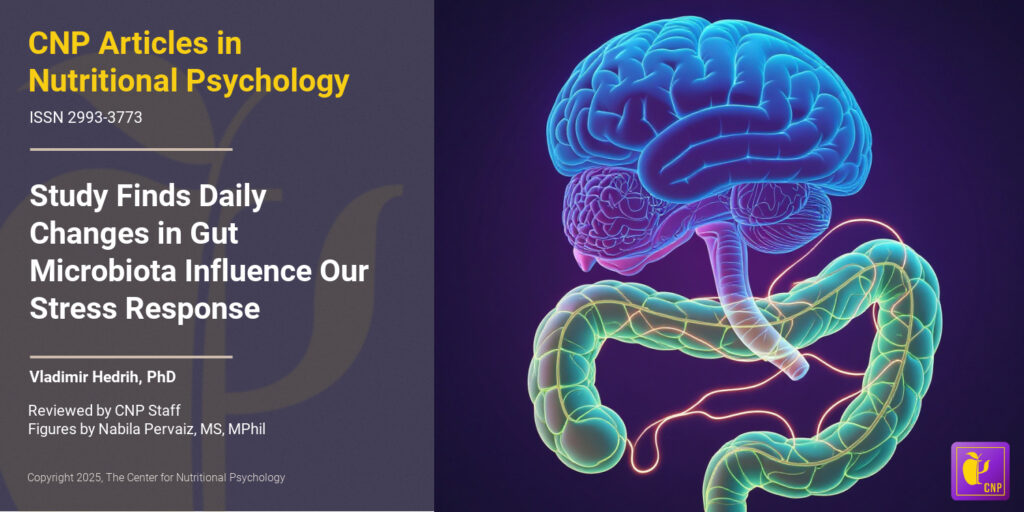
A study on mice published in Cell Metabolism found that daily oscillations in gut microbiota composition regulate natural daily patterns of corticosterone release. Depletion of gut microbiota results in impairments in stress responsivity that are specific to certain times of day and in disruptions in the rhythmicity of stress pathways in the brain. In this […]
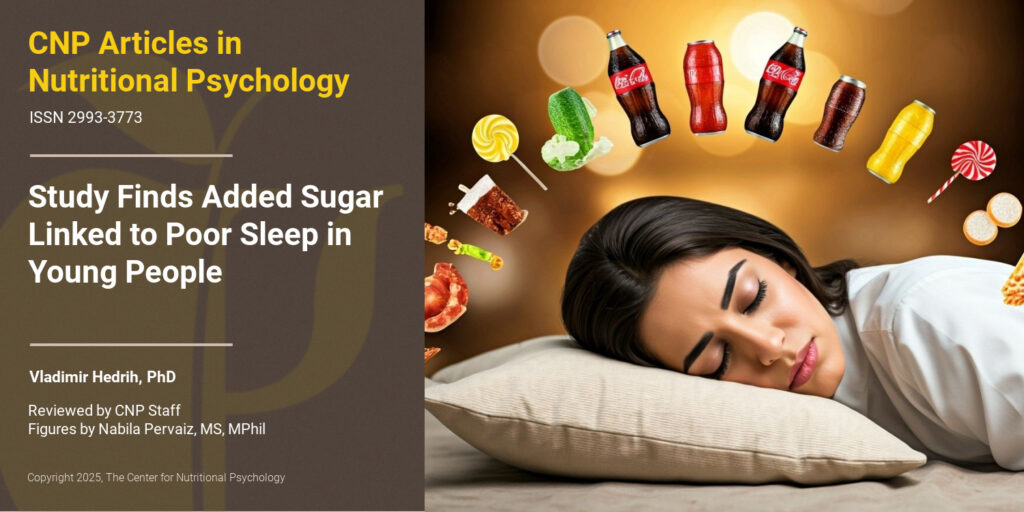
A survey of Saudi Arabian female students published in the American Journal of Lifestyle Medicine examined the links between eating habits and sleep quality Results showed that students consuming higher quantities of foods with added sugars tended to have worse sleep quality Study authors report that only 17% of study participants had good sleep quality […]
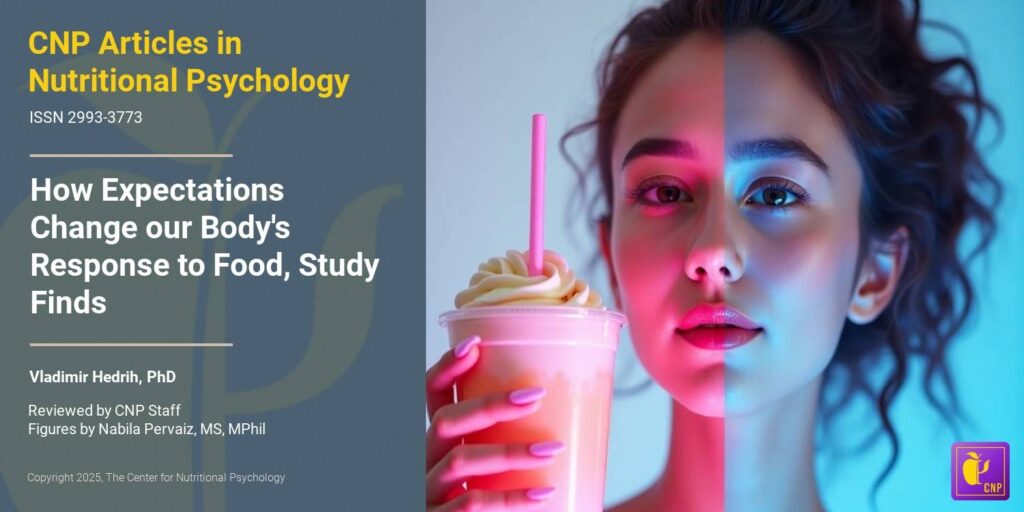
A study published in Health Psychology found that one’s expectations affect physiological responses to food Participants who believed that the milkshake they consumed was high-calorie showed a much steeper decline in ghrelin level compared to participants who believed that the same shake was low-calorie. Participants’ feelings of satiety were consistent with what they believed they […]

A study published in Foods examined the relationship between the availability of palatable food and three aspects of eating behavior —cognitive restraint, uncontrolled eating, and emotional eating. Where palatable foods were widely available, people were more prone to uncontrolled eating and emotional eating Individuals currently on a diet exhibited higher levels of cognitive restraint and […]

 Navigation
Navigation


